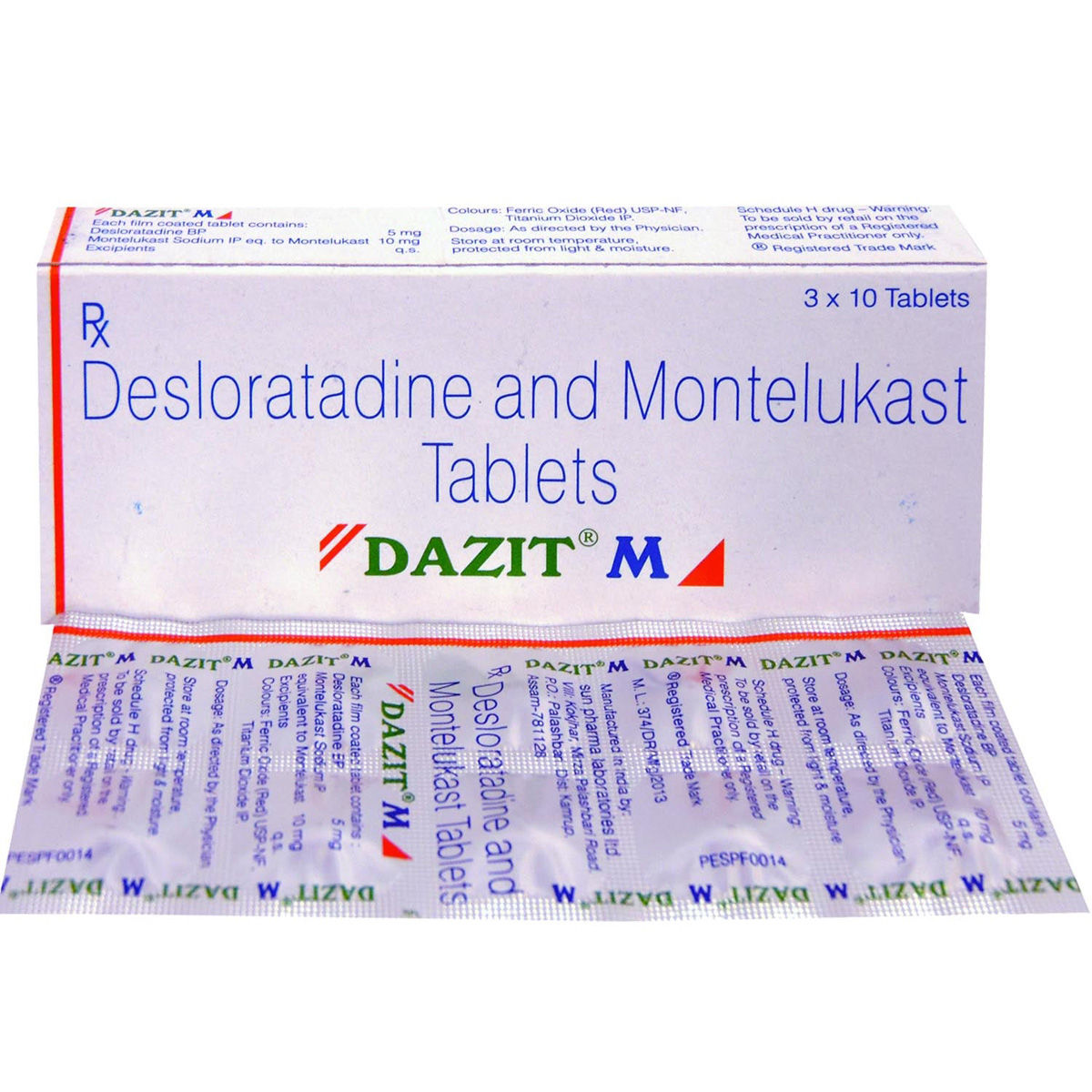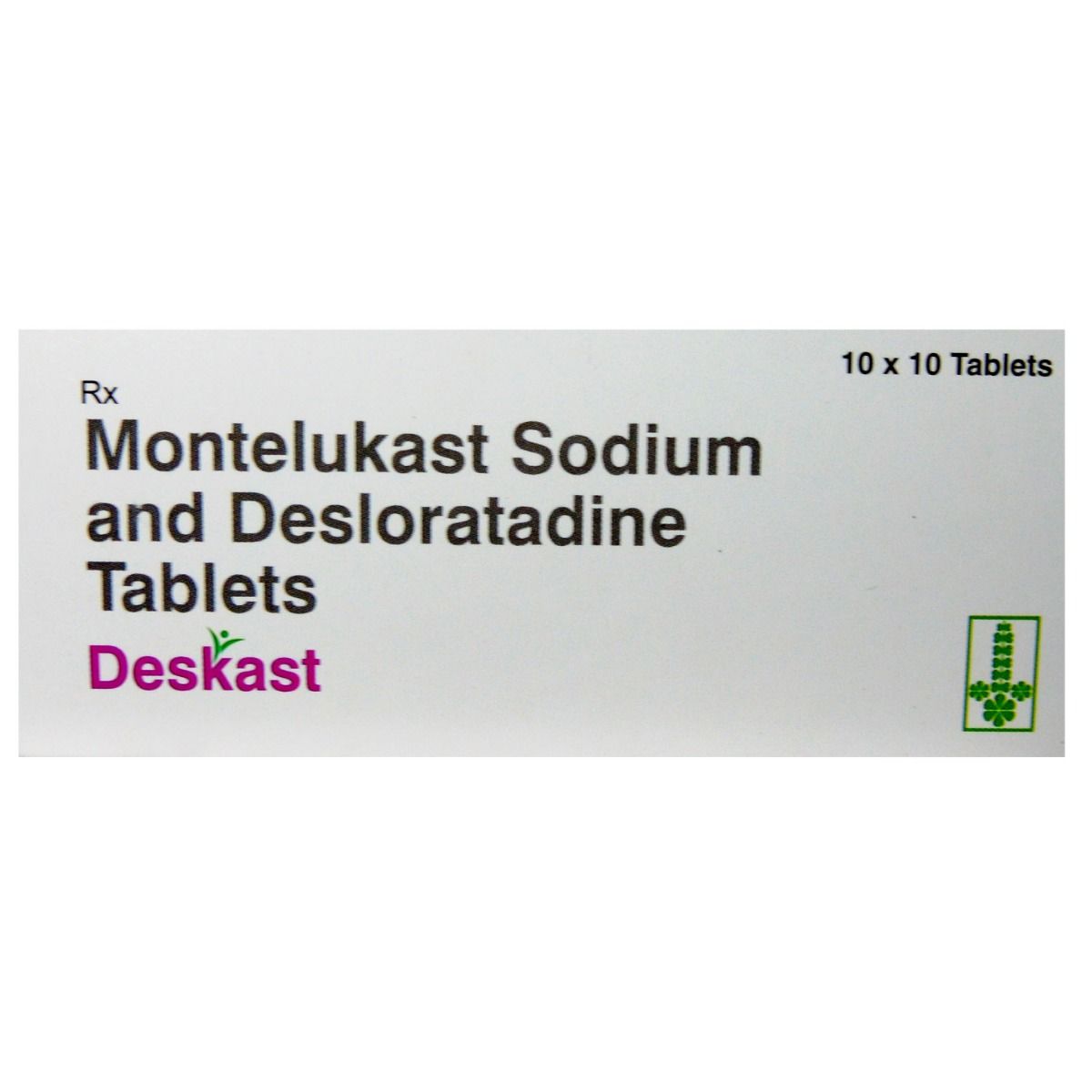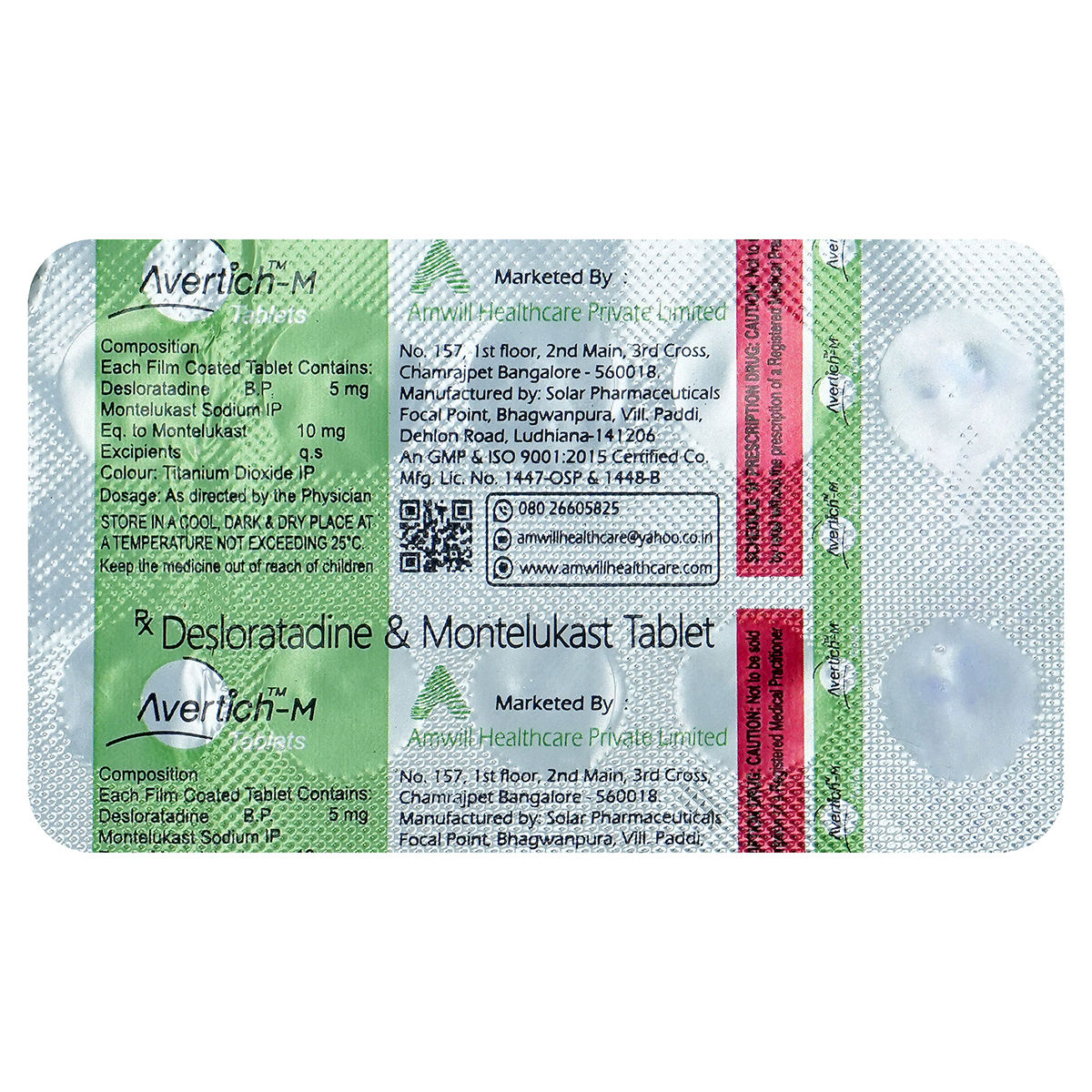Ventidox DL Tablet 10's
₹95.9*
MRP ₹106.5
10% off
₹90.52*
MRP ₹106.5
15% CB
₹15.98 cashback(15%)
Free Delivery
With Circle membership
(Inclusive of all Taxes)
This offer price is valid on orders above ₹800. Apply coupon PHARMA10/PHARMA18 (excluding restricted items)
Know Your Delivery Time
Provide Delivery Location






Whats That

Secure Payment

India's Most Trusted Pharmacy

Genuine Products
Composition :
Manufacturer/Marketer :
Consume Type :
Return Policy :
Expires on or after :
About Ventidox DL Tablet
Ventidox DL Tablet is used in the treatment of allergic rhinitis. Allergic rhinitis (hay fever) is an allergic response to certain foods or pollen, pet dander, or other allergens. Allergic condition varies from person to person. It is typically characterized by allergic symptoms such as a runny nose, sneezing, red, watery, itchy, and swollen eyes.
Ventidox DL Tablet is a combination of two medicines: Desloratadine and Montelukast. Desloratadine is an antihistamine and acts by blocking histamine's action (chemicals causing allergic symptoms) and reducing the allergic reaction. It provides quick relief from allergic symptoms. Montelukast is a leukotriene antagonist, which blocks a chemical messenger (leukotriene) and reduces inflammation and swelling in the nose.
You should take this medicine as prescribed by your doctor. The common side effects of Ventidox DL Tablet are abdominal pain, headache, fatigue, and dry mouth. These side effects usually go away without any medical treatment. However, if any of these side effects persist or worsen, consult a doctor immediately.
Do not take Ventidox DL Tablet if you are allergic to Desloratadine, Montelukast, or any other ingredients present in it. Before taking Ventidox DL Tablet , inform your doctor about all the allergies you have, if any. Ventidox DL Tablet is not recommended in patients who have medical or family history of seizures, kidney failure, and phenylketonuria (an inherited disease that causes a build-up of amino acid phenylalanine in the body). Ventidox DL Tablet is not recommended for use in children under 12 years of age. Inform your doctor if you are pregnant or breastfeeding.
Uses of Ventidox DL Tablet
Medicinal Benefits
Ventidox DL Tablet is a combination of two medicines: Desloratadine and Montelukast. Desloratadine is an antihistamine and acts by blocking histamine's action (chemicals causing allergic symptoms) and reducing the allergic reaction. It provides quick relief from allergic symptoms. Montelukast is a leukotriene antagonist, which blocks a chemical messenger (leukotriene) and reduces inflammation and swelling in the nose. Together, Ventidox DL Tablet improves allergic symptoms such as sneezing, runny nose, coughing, watery eyes, etc.
Side Effects of Ventidox DL Tablet
- Abdominal pain
- Headache
- Fatigue
- Dry mouth
- Diarrhea
- Dizziness
- Drowsiness
- Nausea
- Vomition
- Fatigue
- Irritability
Directions for Use
Storage
Drug Warnings
If you notice any behavioral changes while taking Ventidox DL Tablet , inform your doctor immediately. If you are supposed to undergo skin testing, the doctor might advise you to stop taking Ventidox DL Tablet 72 hours before the test as it decreases response to skin prick test. Do not stop taking Ventidox DL Tablet abruptly even if you feel better, as it may cause withdrawal symptoms such as itching, burning sensations, or runny nose.
Therapeutic Class
Drug-Drug Interactions
Drug-Food Interactions
Diet & Lifestyle Advise
Stay hydrated, as it is vital for those with a cough or cold. Drinking liquids at room temperature can alleviate runny nose and sneezing.
Avoid stress as the immune system is affected by stress and raises the risk of being sick. An individual can exercise regularly, meditate, do deep breathing, and try progressive muscle relaxation techniques to relieve stress.
Avoid contact with known allergens (allergy-causing agents) such as pollen, dust, etc., and also certain food items are known to cause allergies to you.
Maintain personal hygiene and keep your surroundings clean.
Habit Forming
How Ventidox DL Tablet Works
What if I have taken an overdose of Ventidox DL Tablet
Alcohol
Caution
Alcohol consumption may worsen your health condition and also interfere with the activity of Ventidox DL Tablet . So, do not consume alcohol while taking Ventidox DL Tablet .
Pregnancy
Unsafe
Ventidox DL Tablet is a category C medicine. It may cause toxic effects to the fetus. So, it should be used in pregnant women only if needed by doing a benefit/risk assessment.
Breast Feeding
Safe if prescribed
Ventidox DL Tablet can be safely used in breastfeeding mothers when prescribed.
Driving
Caution
Ventidox DL Tablet may cause drowsiness. So, do not drive or operate heavy machinery if you feel sleepy.
Liver
Caution
Ventidox DL Tablet should be used with caution in patients with liver diseases. The dose may have to be adjusted by your doctor.
Kidney
Caution
Ventidox DL Tablet should be used with caution in patients with kidney diseases. The dose may have to be adjusted by your doctor.
Children
Unsafe
Ventidox DL Tablet is not recommended for use in children under 12 years of age.
Country of origin
Manufacturer/Marketer address
Author Details
We provide you with authentic, trustworthy and relevant information
Ventidox DL Tablet Substitute

MonDeslor Tablet 10's
₹20.25per tabletDazit M Tablet 10's
₹20.25per tabletDeskast Tablet 10's
₹23.13per tabletAllerde-M Tablet 10's
by AYUR
₹17.82per tabletDezlorid M Tablet 10's
by AYUR
₹18.00per tablet
FAQs
Disclaimer
Product Substitutes


















